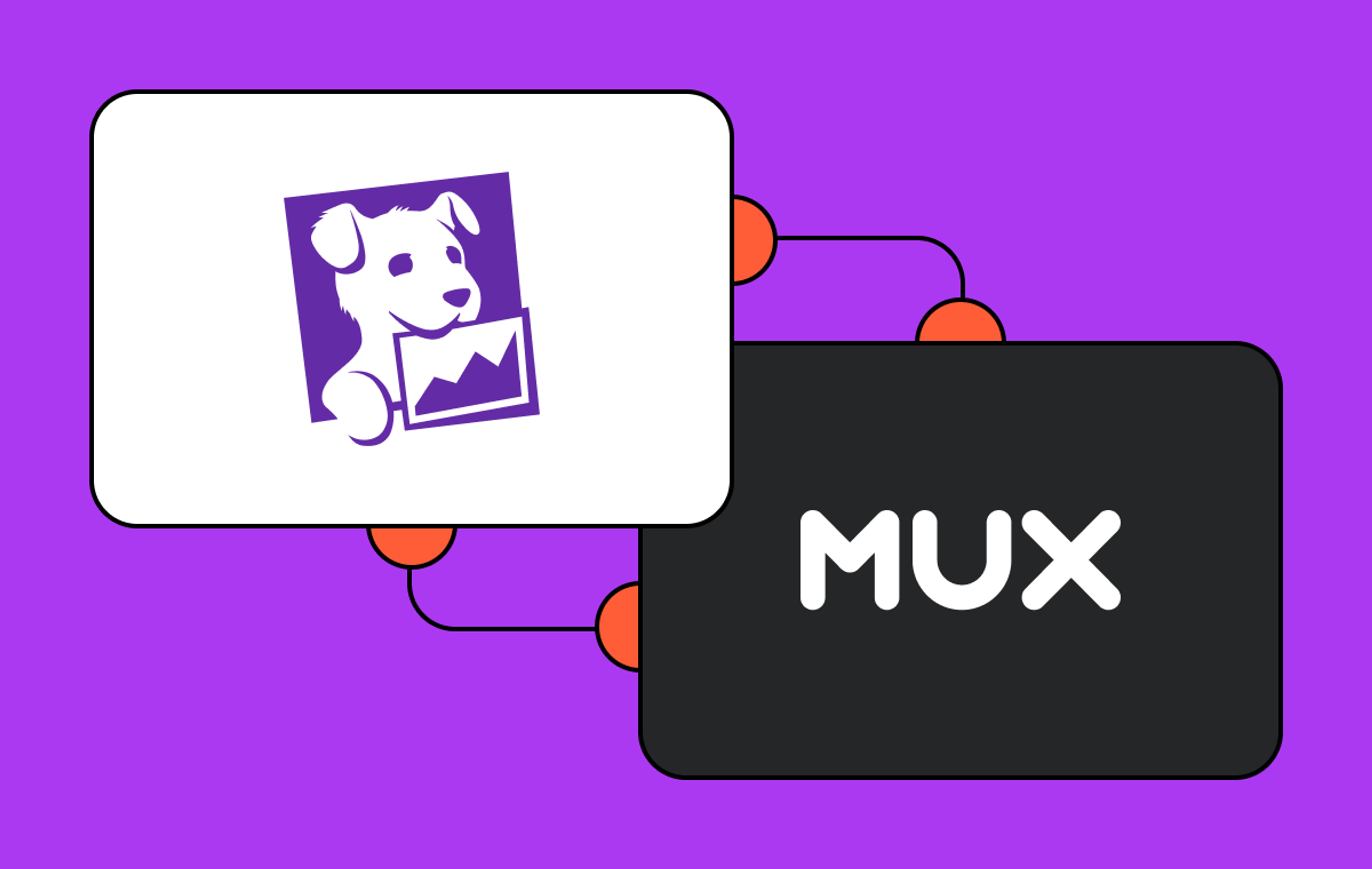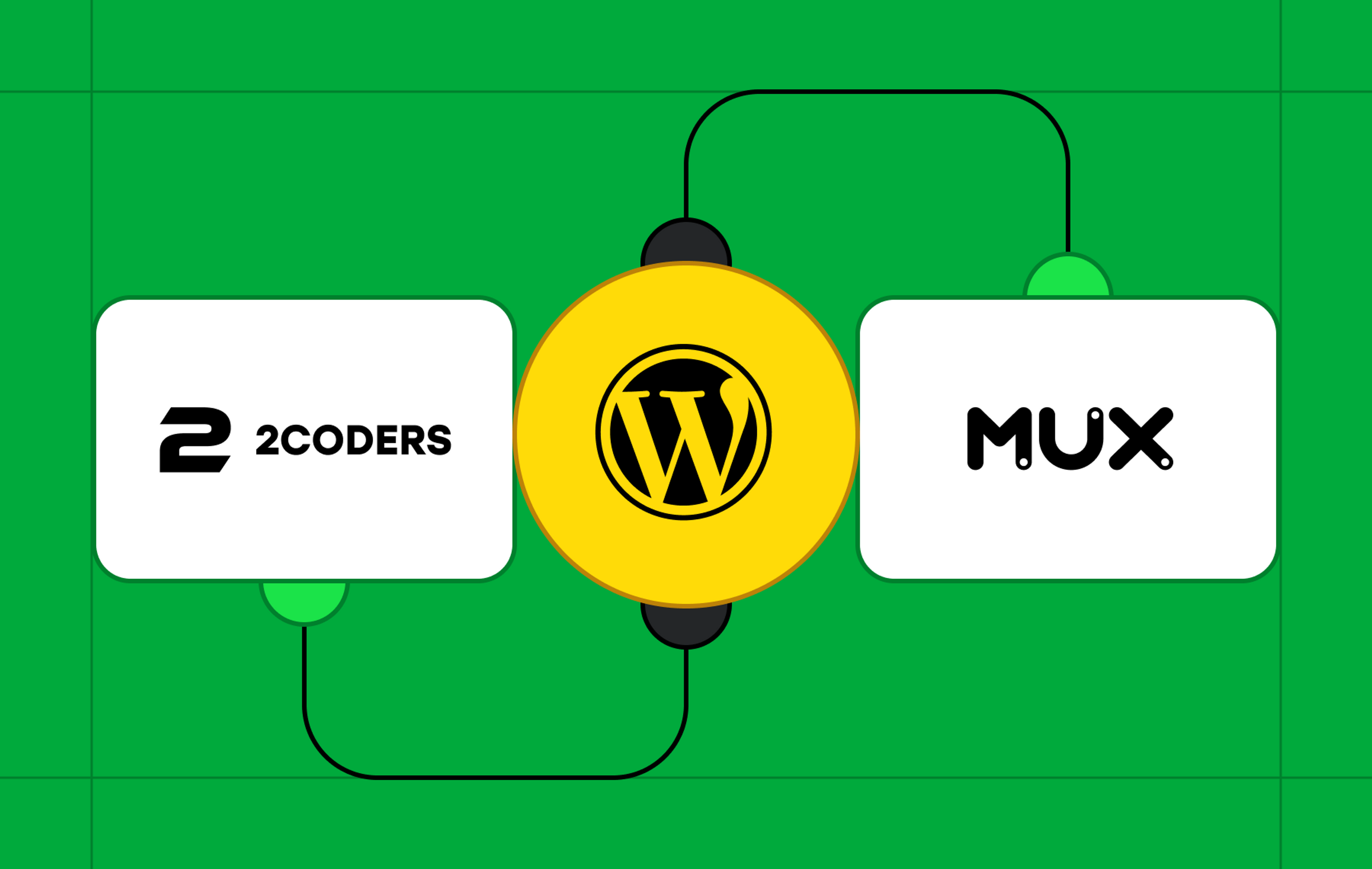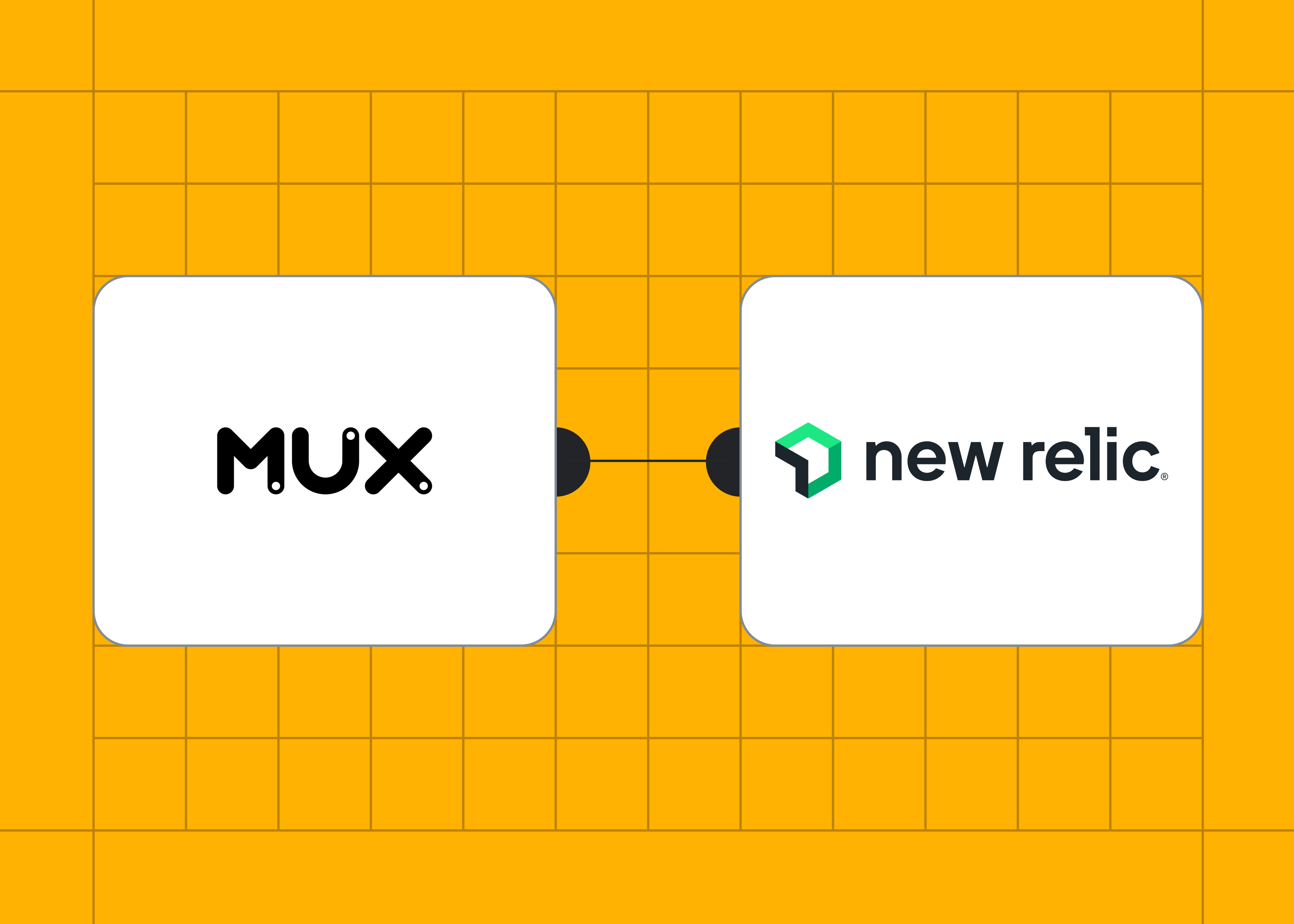Lee Robinson, VP of Product, Vercel: The biggest friction point whenever I'm trying to get something online is having to go spin up a bunch of different accounts and set up billing in multiple places and configure the alerting right and go through the onboarding process. That's after I've actually decided on the tools that I want to use.
Sometimes I don't know the right tool to use. I don't know the right SaaS solution in that vertical that has the features that I need. Or that integrates well with the other parts of my technology stack that I'm trying to use.
Like broadly speaking, the big picture of the marketplace for me is the same clone and deploy experience that people enjoy Vercel for, which is you can get a site online globally distributed in under a minute, we want to extend that to any of the services that are a part of the marketplace, whether that's setting up your video infrastructure, setting up your database, setting up your AI inference, setting up really anything that you want can all be a part of that same workflow.
Dave Kiss: Lee Robinson, you might have heard of him. We're big fans. Not only is Lee the VP of Product at Vercel, he's a successful content creator himself — consistently sharing insights on modern web development, frameworks, and best practices for scaling apps.
In this chat, we're diving into that feature he mentioned in the intro, the Vercel Marketplace, and how it helps devs ship faster. We'll also get into some thoughts around AI and web development, pick Lee's brain on some tips and tools for content creators, and more.
Lee Robinson: Something that I probably don't talk about enough and I kind of just take it for granted because it's a core part of my developer tools ethos, but strongly believe in free tiers, strongly believe in.
Allowing people to sign up with zero friction and then kind of grow as needed. And I think what marketplaces do in a lot of ways, especially for very busy verticals, like databases, is that it really incentivizes people to make compelling offers for the things that developers really, really want. Which is they want to sign up in as little friction as possible, start storing some data, like actually try it out and kick the tires. And then if the product is good, then they will stay and convert to a paid user, and especially with, you know, stickier products that have storage. It's like, oh, yeah, of course, once I've already got my data schema established, now it makes sense, I want to keep growing here. I think in a lot of ways to what Mux is doing at the same, same level.
So what I hope is that for every solution that gets integrated into the marketplace, they have that same level of simplicity for setting up, but then also provide good cloud infrastructure, good tools on top to then grow further.
Dave Kiss: What I thought we would talk about a little bit here is just what value Mux being in the marketplace brings to a developer working with video, or even just like what opportunities you might see Lee as a developer working with video, how they can kind of leverage an integration like this to level up their video integration in their Next apps.
Lee Robinson: Yeah, well, I would say there's kind of two or three big main categories of video problems that I see Next.js and Vercel customers run into pretty frequently. Which is one, honestly, they're not sure the right way to deliver the video to customers. They, they know they have video. They know they want to get it on their website or web application. They don't know the right way to package it in a way that's going to be performant. And I think having opinionated solutions is very helpful for that.
The second one is that, you know, they already know they have some video, but they want to figure out the right way to compress it, transform it, get it into a format that's as digestible as possible for the insight.
And then I would say the third one that I think y'all do a very good job with is also the developer experience of how the dev actually writes code that integrates into the tools that they're using, whether that's Next.js and React or other frameworks, like building tools that make it very easy to install a component. You know, put in an ID or an account and just easily get something flowing, abstracts away a lot of the little gotchas that people probably haven't spent as much time thinking about as y'all, because just like I know video is the same as photo. And I know photos the same as some other areas, where there's so many little tricky things that most people don't think about to get right, that you really appreciate the abstraction when you start to use a more full featured, feature rich component that does a lot of that stuff for you.
Dave Kiss: You don't have to be the video expert. And I've said this in other conversations too, where like, internally, I will still have conversations with some of the video engineers on our team that I don't, I still don't understand. And I've worked here for three years. Like having these conversations about how tricky video can ultimately get and how that just kind of gets abstracted away or packaged, it's kind of the whole goal. That's what Mux is all about.
Have you seen, with all the projects that you spend time with, have you seen innovative ways that folks have leveraged video in their applications? And what might that, this sort of integration enable to make those sorts of innovations even easier or more potentially explorable?
Lee Robinson: Yeah, there's of course the traditional use cases for video and we see lots of folks doing that, but increasingly as more folks are doing kind of generative AI, both in photo, but especially in video, they're kind of building these AI native interfaces that are taking what used to be a video editor or taking what used to be video tools and making it accessible to, broadly, many different creators who probably don't know a lot about video editing.
Like, I kind of think about it as the TikTokification of the video editor, where it's like super easy now for people who want TikTok. I see that on the web now, as well, with people building AI-first video products, and they can leverage Mux for all sorts of different video tools on top of, of course, like the core AI workflows that they're building out. So I've seen that more and more frequently now.
Dave Kiss: What, what are the, the innovations that y'all are pursuing for 2025 and how, what's the, is there any tie in to what the marketplace is trying to accomplish with any of the other stuff that you're working on over at Vercel?
Lee Robinson: Yeah. I think one of our big goals for 2025 is supporting more demanding, complex, personalized, dynamic workloads as a lot of our customers who've been with us for some time have grown to a significant scale. They're trying to run, you know, very personalized, dynamic experiments and trying to build applications that are, you know, much more complex than what they were previously doing. And to do that, it requires more compute, it requires more integrations. It might require working with other services who are kind of custom built for that. You know, a classic example is background jobs or queues is something that Vercel has a cron system, but it's for basic, you know, workflows. But once you start getting into, you know, durable background functions, there's a lot of complexity that goes down in that hole. And sometimes people want to rely on third party integrations that are now becoming first party integrations.
Same thing with video, same thing with photo, same thing with many different verticals, including AI inference, which we've been partnering with folks on, and a very increasingly common use case on Vercel as well. So that's a big category is just supporting increasing customer demand for highly dynamic, stateful, personalized workloads and just continuing making our product portfolio there more robust, but also still integrating with best in class solutions where it makes, you know, it makes the most sense.
Dave Kiss: So one of the things that we've played with on our end is trying to find ways to make v0 the most compatible that it can be with some of the components and products on our side of things. Do you see any innovation or development in v0 land and how that can ultimately help bring somebody's vision with a video or their own products with Next.js to life quicker?
Lee Robinson: Yeah, for sure. So for context, v0 is an, an AI web development agent that we build. And I know agents are pretty generic world today, but it helps you understand web technologies and build web applications better. So you can ask it questions, but you can also ask it to generate code. And it has context of all the Vercel and Next.js and related tools in the ecosystem.
One really popular feature that it has is you can drop in screenshots of maybe a component you want to build or a part of a website that you like and get some inspiration from that kind of fork it and build your own version and tweak things as needed.
Just recently I saw a request from someone to build that same feature but for video and the complexity there is definitely steep, right? Like being able to accept in a video, process it, understand the individual frames, I guess try to figure out a way to turn the frames into individual pieces of the app and like what the sequencing is there. I think something like that would be really cool.
And then on the kind of flip side, being able to integrate video tooling into the generated apps that v0 can build. Sometimes I think of v0 as kind of our general knowledge hub. So, for it to have really great context of, you know, here's how you should do a video. Here's the things you should look out for. Here's the things that you need to know. Here's the tools that you can integrate with. What the marketplace does that's really, really exciting is, let's say you're trying to build an app that works with video, and you ask v0, and it says, hey, here's how you should build it, and you should use Mux.
So you want to use Mux, and you want to deploy to Vercel, what you can say is just, I would like to integrate these two services together. v0 will prompt you to enter in your environment variable for that service, and you can go out to Vercel, and in a few clicks, integrate directly to Mux, get the environment variable in your project, and now you're set up and ready to go.
And we might even make that, you know, fewer clicks in the future, but that's something It allows you to kind of chat with the AI to build your product in real time and to code in real time while still storing in secure connections to other services through the marketplace and still use those services kind of on the back end, which I think is really interesting.
Dave Kiss: Now, do you have, this is a little bit of knowledge gap with v0, but is there a way to provide like documentation or any kind of links to just help it out with like, hey, there's a lot of different parts for video if you have this link or hey, this, you can use this as your resource to be able to kind of scan through and see how you might integrate different parts.
Is that a feature that v0 enables?
Lee Robinson: Yeah, totally. So for common web dev tools, frameworks, libraries like ORMs, it already has context of that. But if you want to provide an additional context, you can attach documents into the chat as you're working with, you know, whatever chat you're on. Or when you create a project in v0, you can add additional sources, which can be files or, whether that's actual code files or Markdown files or text files, you can adjust like a prompt inside of there for what you want the system to know about as you're working on the project.
So you can provide additional knowledge or kind of guide the AI in the right way that you prefer.
Dave Kiss: Man, it's such a wild world. Like I, sometimes I sit back and think of like, we've come so far, it's like 20 years, 20 years ago for me to spin up all these different services and then write the code to integrate like an uploader or have like the app deployed, if that's even possible, like with a, without FTP into the server, like we've come so far that it just kind of blows my mind.
These kids these days.
Lee Robinson: Yeah.
The it's, it's the biggest mind bending situation for me because I think about how long it would have taken me to complete and integrate all of the different things I'm able to do now in like 10 minutes, 15 minutes. Like quite literally the time to v0, hence the name, has never been faster. Like you can just ask for something review the code and kind of treat it more like, you know, a junior engineer that you're working with where you're going to trust but verify the output. Okay, this looks right. This looks good. Change this thing. Actually, you should do this better.
But then you have a working app and you can just build a lot of things much faster and focus more on delivering product value.
Dave Kiss: Gosh. So wild.
All right. I want to ask you Lee about the video production side of things. So you are, you're obviously in front of the camera a lot. You're doing tutorials and interviews. Why is this important to you in terms of even just personally, like what, what is your personal preference for video or being on camera and how does that benefit you?
How does that help you grow as a creator, as an individual? And what is that doing for your overall strategy?
Lee Robinson: Yeah, so me and, me and video have a long history. I've been making and editing videos since I was a nerdy kid in my early teens. I'm still a nerdy kid. I'm just now in my 30s. But the passion has been there that whole time.
And you know, when I got started, I was just doing things with like video games and downloading cracked versions of video editors. Sorry, mom. I wasn't going to pay for that, but I've been doing this for a very long time. And when I got into programming, when I got into tech, that love of video kind of never went away and I kind of just stumbled into doing developer education.
I didn't really set out to do that, but it was a, a mesh of all the things that I really cared about. I like programming. I like tech in general. I like teaching people and I like finding the right medium to deliver that message. And sometimes that's writing. Sometimes that's an in person event.
But increasingly, for most things, it's actually distributing video online. Video is the primary way that I get my message out to people in our community. More than just the, you know, local work that I could do, or the work that I could do when I'm in San Francisco, I'm able to talk to people all over the world, get the message in all of our sub communities of Next.js around the world all thanks to video So really nailing in the video strategy, you know quality, content has been something that I've spent a lot of energy on and I try to get you know just 1 percent better every day like I'm in the process, not right now, but over the next two months-ish will be kind of redoing my studio and better lighting and all sorts of stuff. So I'm looking forward to that.
Dave Kiss: Lee, with as much time as you spent on camera and learning all these cracked, or pirated software solutions, which maybe they've evolved over the years. Allegedly. Allegedly, we'll see.
What have you learned? In sum, I mean, there's, there's years, years of experience. What sort of advice might you have to somebody that's out there that's looking at getting started with video or media development to help pursue some of the things that you've talked about being passionate about pursuing with whether that's education or just kind of like growing their influence?
Lee Robinson: Yeah, I think, especially in recent years, so let's call it like the past two or three years, The developer creator education space is kind of bifurcated into two types of video. There is educational video, but then there's also entertainment video, and they are not necessarily the same thing. Sometimes they're the same thing, but they do not have to be the same thing.
So the former category is everything you're probably used to. It's YouTube videos, it's courses that you could purchase. It's the things that you might link inside of a documentation website. It's the things that you might have in an onboarding. The latter is increasingly more live streams and actually spending time with creators and developers one on one versus, you know, just to have fun versus actually some kind of structured learning content. Now, you might learn as a, you know, as a side effect of having fun on a live stream, but that's not necessarily the primary goal. It's more of a community building thing, and video is the medium in which it's delivered.
So, my advice, or at least one advice, getting started is, understand the difference and make sure you know which one you're wanting to spend time on or both, but they require different skills and the output of those will be different my recommendation would probably be to start on the former versus the latter because there is an ever growing desire for high quality developer education and especially in an AI-first world.
I think it's fantastic that we have infinite knowledge at our fingertips, yet humans crave humans and humans crave, you know, very specifically structured educational patterns and courses and a very thoughtful curriculum. And I think the best educators are starting to do that find a way to merge those two worlds.
Yes, AI is great for some things, but here's how I deliver a video with my personality and my style and the way that I like to teach in a, in a more human nature, even if I get assistance on code from an AI. So maybe that will be helpful.
Dave Kiss: Yeah. Yeah. I feel like that's kind of the key here with a lot of these AI tools or AI assistance is, yeah, it's great. You know, it's a great starting point for getting kind of the ideas flowing, but in terms of the actual packaging and delivery of how we can leverage that knowledge, but make it relatable and communicate it to a person. That's an entirely different game. Right?
And maybe there's just some data set that eventually will be big enough for the AIs are trained and we're all just, whatever. We can't tell the difference between an AI and a human. I don't know if that's ever going to be the truth, but right now, more important than ever, to me anyway, is the human side of communication. Is being able to show up on a live stream with somebody and just be able to talk about what's inspiring, where this stuff is heading, and what's got you most interested.
So yeah, I totally resonate with that sentiment.
Lee Robinson: Yeah, the thing is that AI can't replace craft and taste. And while we always, we say on v0 a lot that, you know, everyone can cook now, like anybody can be a builder, AI is kind of like the cookbook and the ingredients.
So it gives you some of the raw ingredients, but you, as the controller of the system, you are the one who's putting the pieces of the cookbook together. Like, you know what good looks like. You know the structure you want even if you have assistance along the way of actually putting the pieces together. The recipes together.
Dave Kiss: In that vein of new technology, is there a new tech or trend that you've seen that you haven't had time to really dig into yet, but plan on trying to uncover in 2025?
Lee Robinson: That's a good question. I haven't done as much with voice as a modality in some of the latest AI. Models and applications. And I think it's really interesting, whether that's like voice to voice where you can chat with an assistant, or voice to code. So you just speak and you can generate parts of your application or voice to refactor where you're like talking and you're telling it, okay, change this thing and then change that thing.
I've started to find myself, because I can talk faster than I can write, speaking a lot more and, and audio transcription has got a lot better, especially with AI note taking tools have gotten quite a bit better. So, I would like to do more stuff with voice next year. This year, 2025, we're here.
Dave Kiss: So Lee, what about in your toolbox for when you're creating videos or anything that's going to help you be a more efficient video producer or content producer?
Is there anything that stands out as a valuable tool tool that you can't live without?
Lee Robinson: Yeah, I think for a lot of folks a tool like Screen Studio can take you really far because it does, you know, pretty good screen captures, and then also has built in captioning, and I think it also has the ability to touch up the audio.
Those are kind of three main pillars. I kind of have a more bespoke workflow just because of what I'm used to. I use ScreenFlow. I find that it works well for my screen recordings. Sometimes I will use a tool to enhance or fix the audio. Adobe's podcast tool is like pretty good. If you haven't seen that before, it's like does a pretty good job of cleaning up the audio. In terms of other tools for video. I mean, I have lots of nerdy things I can go into with like the LUTs and the camera settings and like all that good stuff, but yeah, mostly the bread and butter is getting the right software for recording and editing. I, I have Final Cut, but I don't really use it that much anymore. Recording, editing, audio.
And then publishing, shout out to Typefully for publishing to multiple social channels. It's a great tool.
Dave Kiss: Lee, with the new Mux integration on the Vercel Marketplace, would you have any suggestions for a developer that's interested in getting started or what the next step is where they can really begin?
Lee Robinson: Yeah, we have hopefully now made it as easy as possible for you to get started with Next.js or your framework of choice and Mux and on Vercel.com/marketplace you can in a few clicks set up your Mux account, get connected, get off to the races on integrating our services together and get your site online pretty quickly. And hopefully we'll have, if we don't already have, we'll soon have some templates for you to get started with.
Dave Kiss: Awesome, Lee, thank you for your time today. Really appreciate it. And yeah, I'm really thrilled about having this integration on the marketplace as well.
Anything, like I said before, you know, that we can do to help make developers lives easier and reduce the amount of friction that it takes in standing up a heavy requirements for some of these production applications is a win in my book, whatever we can do to reduce complexity and just make things easier and that's, that's all we, I think we can ask for in terms of the developer experience.
Lee Robinson: A hundred percent. Yeah. Thank you for having me.
Learn more about Mux's integration with Vercel.




